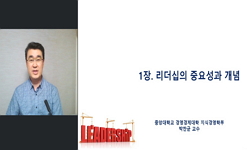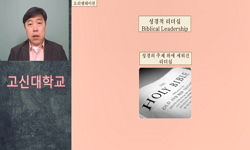하나님의 종들이 자기 봉사의 목적으로 삼는 것은 하나님의 백성이 생명을 얻는 것이다. 모세 역시 이스라엘 백성이 생명을 얻을 수 있도록 항상 노력했다. 그가 가르치는 모든 계명들은 이...
http://chineseinput.net/에서 pinyin(병음)방식으로 중국어를 변환할 수 있습니다.
변환된 중국어를 복사하여 사용하시면 됩니다.
- 中文 을 입력하시려면 zhongwen을 입력하시고 space를누르시면됩니다.
- 北京 을 입력하시려면 beijing을 입력하시고 space를 누르시면 됩니다.
부가정보
국문 초록 (Abstract)
하나님의 종들이 자기 봉사의 목적으로 삼는 것은 하나님의 백성이 생명을 얻는 것이다. 모세 역시 이스라엘 백성이 생명을 얻을 수 있도록 항상 노력했다. 그가 가르치는 모든 계명들은 이스라엘 백성이 생명을 얻게 하려는 것들이었다(신 5:33; 8:1, 3). 모세는 백성이 생명을 얻으려면 자신이 가르치는 계명을 순종해야 한다고 말했다. 그런데 생명을 목적으로 하는 모세가 이끌었던 백성이 광야에서 모두 죽었다. 모세 역시 그와 같은 결말 에서 벗어나지 못했다. 그러므로 생명을 위한 신학을 추구하는 우리들은 모세를통해 교훈을 얻을 수 있을 것이다. 출애굽기 2:11-22절에서 모세 리더십의 장점들뿐만 아니라, 한계가 나타난다. 모세 리더십의 한계는 모세가 이스라엘 백성의 마음을 이해하지 않았고, 그들의 아픔을 위로하지 못했다는 것이다. 또한 이스라엘 백성은 모세를 그들 형제들 중의 하나로서가 아니라 이방인으로 생각했다. 출애굽기 15-17장에 기록된 세 번의 원망 사건들에서 모세와 이스라엘 백성들 사이의 갈등이 점점 고조되어 갔다. 첫 번째 원망 사건(출 15:2226)에서 백성들과 모세의 관계는 백성들의 원망에도 불구하고. 전체적으로 무난하였다. 모세가 백성들에 대하여 비난하지 않고, 단지 하나님께만 부르짖었기 때문이다. 두 번째 원망 사건(출 16:1-36)에서 백성은 모세를 원망하고, 모세가 지신들을 광야로 데리고 나온 것에 대해 무책임한 행동이라고 투덜거렸다. 이에 대해 모세는 이스라엘 백성이 지신뿐만 아니라 하나님을 원망한다고 비난했다. 세 번째 원망 사건(출 17:1-7)에서 백성은 모세와 다투었다. 그리고 모세가 자신들을 광야로 데리고 나온 것에 대해 무책임하다고 원망했다. 이 때 모세는 이스라엘 백성이 자신과 다투며, 하나님을 시험한다고 비난했다. 이에 덧붙여 모세는 그들이 자신을 죽이려 한다고 말했다. 그러나 하나님께서는 이스라엘 백성을 책망하시지 않으신다. 하나님께서는 당연하다는 듯이 이스라엘 백성의 요구 사항들을 해결해 주신다. 하나님께서는 모세를 책망하지는 않으셨으나, 모세에게 어떻게 행동해야 하는가를 지시하셨다. 결국 우리는 하나님과 모세의 입장에 차이가 있다는 것을 알게 된다. 이스라엘의 원망에 대하여 모세는 비난하였으나, 하나님은 그 원망을 해소해 주셨다. 모세는 하나님의 마음을 알지 못했다. 또한 백성들의 고통에 대해 공감하려는 자세보다는, 책망하려는 자세를 취했다. 이와 같은 모세의 리더십은 여호수아의 리더십과 다르다. 모세는 백성들과 마음을 공유하지 못했고. 그들과 협력자로 행동하지 않았다. 그러나 여호수아는 백성들과 함께 고통을 나누었으며, 그들과 협력하여 자신에게 맡겨진 일들을 처리했다. 모세의 리더십이 갖는 한계가 모세와 백성들 사이를 완전히 단절시켰다. 또 한 번 갈증의 위기를 만났을 때(민 20:2-13), 백성의 비난에 대하여 모세는 백성과 상대하려고 하지도 않고, 회막으로 피했다. 그러나 하나님께서는 모세에게 백생들의 문제를 해결하라고 명하셨다. 모세는 하나님의 지시에 따라 백성들에게 나아갔으나, 백성들을 패역한 자들이라고 비난하였고, 하나님의 거룩하심을 드러내지도 않았다. 결국 하나님께서는 모세지신이 패역한 자라고 책망하셨으며, 모세가 가나안 땅에 들어가지 못하도록 막으셨다. 모세와 백성 사이의 이와 같은 갈등은 아무리 위대한 지도자라 할지라도 한계가 있음을 보여준다. 지도자와 백성 사이의 갈등은 결국 생명으로 이르는 길을 가로막는다. 한국 교회의 지도자들은 성도들과 마음으로 하나가 되는 리더십을 가져야 할 것이다.
다국어 초록 (Multilingual Abstract)
The servants of God are working for His people to get life. Moses also made constant effort so that Israelite people came to get life. All the commandments that he taught to them were designed for them to get life (Deut. 5:33; 8:1, 3). Moses said that...
The servants of God are working for His people to get life. Moses also made constant effort so that Israelite people came to get life. All the commandments that he taught to them were designed for them to get life (Deut. 5:33; 8:1, 3). Moses said that the people, if they wanted to get life, should obeyed the commandments that he taught. But the people whom Moses, the very person that had the purpose to give them life, died in the desert. And Moses himself could not escape from the ending. Therefore we, the theologians and pastors seeking after the theology for life, can learn a lesson from Moses. The strength and weakness of Moses` leadership were shown in the story of Exodus 2:11-22. The weakness of his leadership is that Moses would not understand the Israelite people, their mind, and could not console them in their misfortune. Besides the people of Israel regarded Moses as an alien, not as one of their brothers. In the three murmuring events written in Ex. 15:22-17:7, the conflict between Moses and the people of Israel was escalating to a higher level. In the first murmuring event(Ex. 15:22-26), in spite of the people`s murmuring, the relationship between Moses and the people was tolerable, since Moses did not blame them but just cried to God. In the second murmuring event(Ex 16:1-36), the people grumbled against Moses and murmured that it was irresponsible for Moses to bring them out of Egypt. At this murmuring, Moses criticized them that they grumbled against God as well as himself. In the third murmuring event(Ex 17:1-7), the people quarreled with Moses. And they murmured that it was irresponsible for Moses to bring them out of Egypt. At this time, Moses blamed them that they quarreled with himself and tested God. Besides he said that they tried to kill him. God, however, did not blame the people Israel. God complied with their request. Instead God ordered Moses to do his duty. It appears that a certain gap existed between Moses and God. Moses did not understand God as well as the people. Such leadership of Moses was not like that of Joshua. Moses did not share his feelings with the people, and did not act as their partner. Such weakness of Moses` leadership made the people and the leader to be hostile to each other. In another crisis of thirst(Num. 20:2-13), Moses addressed the people as rebels. God, however, said that Moses himself rebelled against Him, and prohibited Moses from entering the land of Canaan. A great leader can have his own weakness. The conflict between the people and its leader blocks up the passage toward life.
동일학술지(권/호) 다른 논문
-
- 개혁주의생명신학회
- 학회자료
- 2011
- KCI등재
-
개혁주의생명신학의 영생관 -칼빈의 요한문헌 주석을 중심으로
- 개혁주의생명신학회
- 문병호 ( Byung Ho Mun )
- 2011
- KCI등재
-
- 개혁주의생명신학회
- 김진섭 ( Jin Sup Kim )
- 2011
- KCI등재
-
- 개혁주의생명신학회
- 이신열 ( Samuel Y. Lee )
- 2011
- KCI등재





 KISS
KISS






